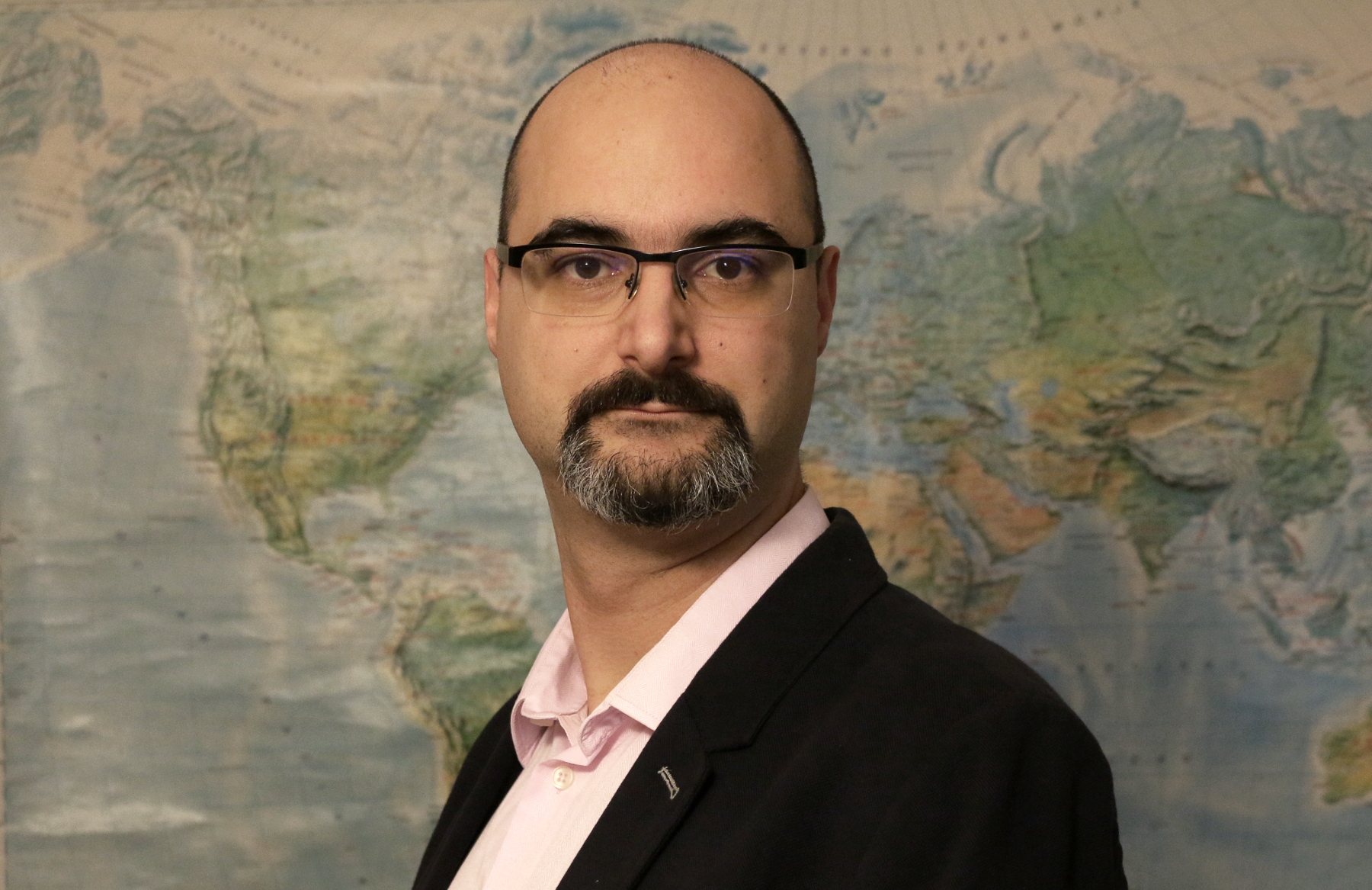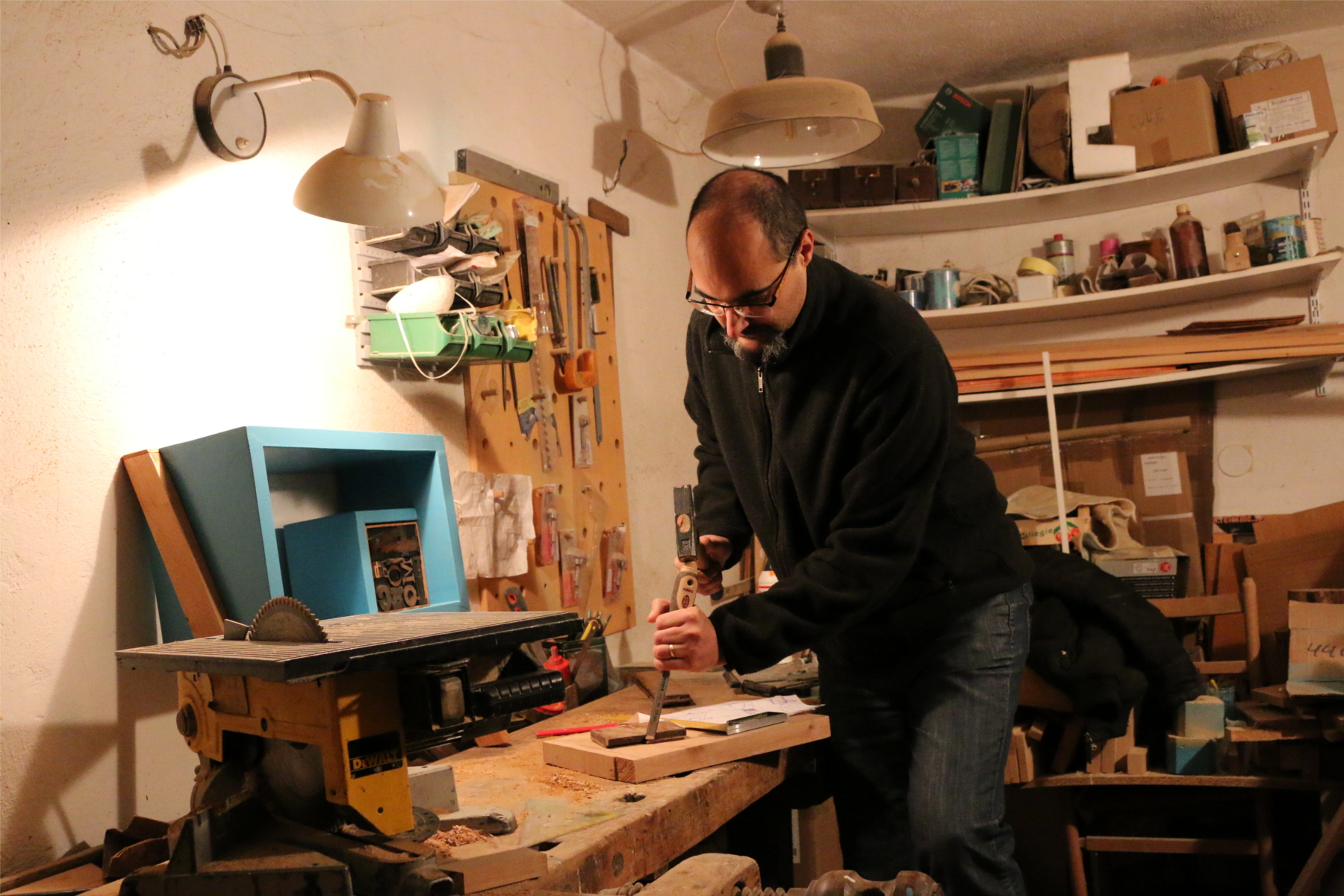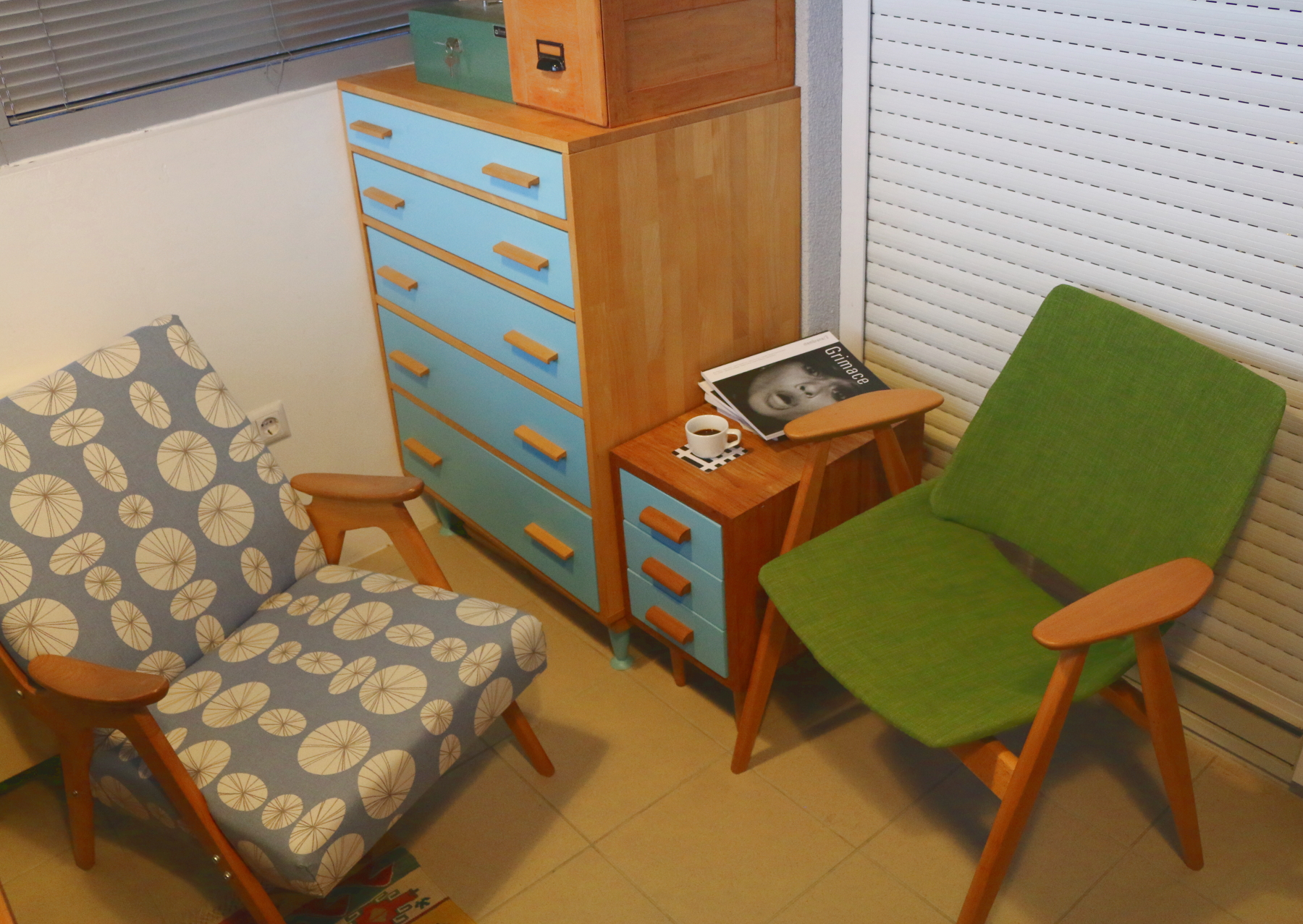Ilija Tomanić Trivundža (born 1974) is based at the Faculty of Social Sciences, University of Ljubljana, Slovenia, where he focuses on visual communication with a special focus on the social and political role of photography in contemporary mediated communication. He is also a co-editor of Membrana magazine on photography. Prior to being elected ECREA president, Ilija served as the association's Vice-President from 2012–2016. His strategies for remaining sane within contemporary academia are collecting vernacular photographs, running, and furniture making and upcycling.

How did you start making furniture?
For me it started out of necessity, renovating our apartment required some custom-made items, but then it gradually became a sort of rebellion against the omnipresent uniformity of IKEA furniture, and then I developed a more creative desire to create objects. But of course, it all goes back to growing up in a strong DIY environment. And I do not mean just the “home made” culture of 1980s Yugoslavia. In my family, the question was often not “Where can I buy this?” but “How can I make this?”, the guilty party being my father, who as a sculptor, always needed to “make stuff” before he could start his projects.
How complex are the things you are making?
There are two kinds of projects that I get involved with. One is renewing old furniture; I particularly like upcycling 1950s and 1960s armchairs, which I buy on flea markets. But sadly, we no longer have space for new ones. The other type of projects are making furniture out of scratch — I did beds, display shelves, chests of drawers or smaller items. These are now much easier to do because for the past two years I have set up a small workshop in a rented garage.

What is the piece you are most proud of?
Actually it will be the one I am working on at the moment, a nightstand made out of alder and oak, which incorporated salvaged parquet from an abandoned local gunpowder factory and wooden block print letters that I have collected throughout the years. Otherwise the most complex one was probably a modernist 1960s style chest of drawers I made for my home office. People get impressed by beds, but those are actually fairly easy to make, for me, it is the drawers that are more challenging.
In what way is your hobby connected to your academic career?
I see it as a counterbalance to research and academia. The biggest pleasure of woodworking, for me, is to work with something material, to create something tangible. A material object rather than just a string of words. You can also draw parallels, there is a research stage to it, such as tracking down old furniture or teaching yourself new techniques. And of course there is a creative dimension to the process, the incubation stage, time spent planning, designing, drawing etc. But for me it is enjoyable precisely because it stands for something completely different from academia.
Have you ever been so caught up in your woodwork that you missed a deadline?
No, when I miss a deadline, the reasons are connected to having too much on my (work) plate rather than to what is on my workbench. The woodworking projects are the last in line, which can be rather annoying, when you would really want to finish a project but you still need to grade 120 student essays first. But the order of priorities is time with family, academic work, running, woodworking.

Would you recommend your hobby to others?
Yes – if you want to work with your hands and if you have the space to do it. And if you appreciate the softness of a well-sanded, polished wood. But one might also appreciate it for the sobering experience it brings, which can be similar to the side effect of the old-fashioned conscription military service, when you were made to “meet” your fellow citizens. When you end up hunting down the last few remaining shops and suppliers of raw materials, you enter this parallel universe with its own networks, supply monopolies, and social hierarchies. Like in academia, there is always someone who knows someone who could help or advise you, but the big challenge is to get to know that first someone, and to get your “hands of an intellectual” accepted on a reasonably equal footing.
Jelena Kleut